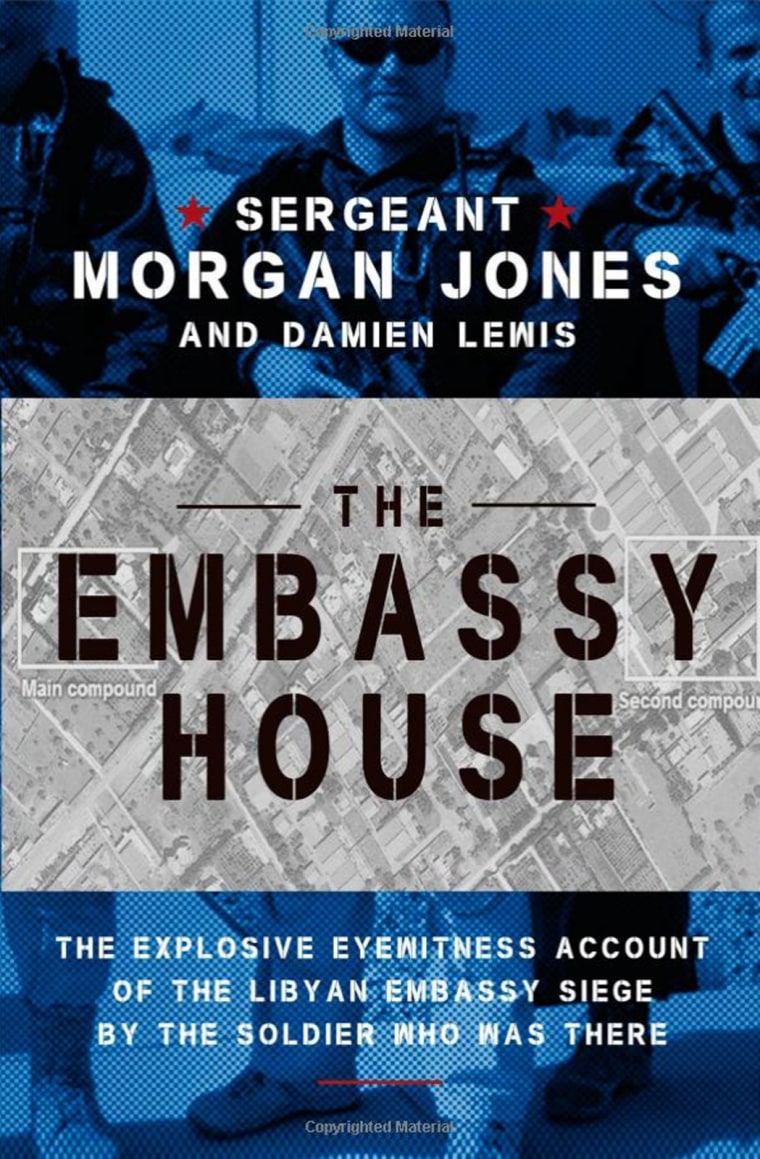A notable publisher ceased the publication of a book detailing firsthand accounts of the Benghazi consulate attacks on Friday, after two previous reports by one of the authors conflicted largely with accounts in the book.
Simon and Schuster’s decision to stop selling “The Embassy House” — written by security officer Dylan Davies under the pseudonym Morgan Jones — followed an apology by CBS correspondent Lara Logan on Friday for featuring Davies as a key source during a “60 Minutes” interview.
In the interview and in the book, Davies recounted rushing to the U.S. compound on the night of the attack. However, an incident report written by Davies and submitted to his employer three days later read, “we could not get anywhere near the mission.”
"In light of information that has been brought to our attention since the initial publication of ‘The Embassy House’, we have withdrawn from publication and sale all formats of this book,” said Jennifer Robinson, a spokeswoman for Threshold Editions, which is a division of Simon & Schuster. Robinson asked booksellers to also remove the books from their physical and virtual shelves.

Amazon removed the Kindle edition of “The Embassy House” from its site shortly after the announcement, but as of Friday afternoon, the book was still listed on the Simon & Schuster website in hardcover, eBook and audio versions. Simon & Schuster is a subsidiary of CBS Corporation.
Slate Magazine also issued a statement Friday regarding an excerpt of the "Embassy House" the online publication printed on Oct. 29., saying they could “no longer stand behind the veracity of Davies’ account.”
A portion of the excerpt read, “It was a night upon which I would fight my way into the besieged Benghazi Mission three times over, largely against orders, in an effort to find my American brothers-in-arms and to stand with them against the terrorist horde. It was a night on which I should have died many times over.”
"We were wrong," Logan said on "CBS' This Morning" after days of defending the Oct. 27 account of Davies during a "60 Minutes" interview in which he disclosed harrowing details about the Sept. 11, 2012 attacks that left four Americans dead. Logan said “60 Minutes” would issue a correction during its next broadcast on Sunday.
After the report was leaked to The Washington Post, Davies told The Daily Beast he had never seen the report, but also admitted to lying to his employer about his actions during the attack, because he did not want to get in trouble for disobeying orders and leaving his post.
Even after the conflicting report called Davies’ credibility into question, "60 Minutes" Executive Producer Jeff Fager told the Huffington Post that CBS was “confident” that every one of the sources featured in the Oct. 27 episode “told accurate versions of what happened that night.”
However, The New York Times reported on Thursday night a report Davies submitted to the FBI lined up with the one he gave to his employer but not with the account he detailed on “60 Minutes” and in his book. This prompted “60 Minutes” to issue a statement Thursday reading, “60 Minutes has learned of new information that undercuts the account told to us by Morgan Jones … We are currently looking into this serious matter to determine if he misled us, and if so, we will make a correction.”
Michael Calderone, the Huffington Post senior media writer who reported CBS’ decision to stand by their source regardless of the conflicting incident report, criticized Logan for alleging that the questions raised about the report were motivated by politics.
“The issue wasn’t about politics,” Calderone said, “but a Journalism 101 question about why the network continued to stand by a source who admitted to lying about events in the past.”
Portions of the "60 Minutes" report — which has since been removed from the CBS website — reignited fury and questions from those who criticized the Obama administration's response to the attack.
Erik Wemple, a news media reporter for the Washington Post, said that news organizations “make corrections and apologies and the like only in the face of overwhelming evidence.”
Still, Calderone said Logan and CBS “brushed off questions” for too long, adding that the Washington Post reported the massive inconsistencies in Davies’ accounts a week before Logan made her apology.
Logan said Friday that CBS first defended Davies because the false report to his employer was “always part of his story.”
She told Norah O’Donnell with "CBS' This Morning" that “60 Minutes” was extremely thorough when screening Davies, as they are with all their sources.
Logan said Davies claimed “he told the FBI the same story that he told us. But as we now know, that was not that case.”
Calderone said CBS News said that they spent a year researching the report and spoke to over 100 people. “CBS journalists had more than enough time to vet its eyewitness’s account and clearly didn’t do so,” he said.
Logan apologized and took responsibility for the false account saying, “The most important thing to every person at '60 Minutes' is the truth, and today the truth is that we made a mistake.”